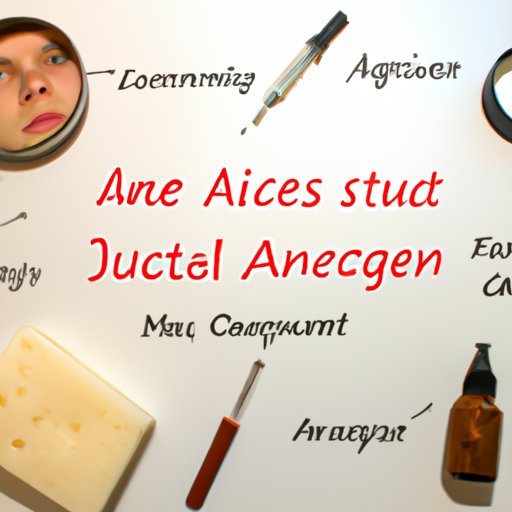Introduction
Acne vulgaris, commonly known as acne, is a skin condition that affects people of all ages. It can cause physical discomfort, emotional distress and even psychological issues. It is estimated that 85 percent of teenagers and up to 50 percent of adults suffer from some form of acne. This article will provide an overview of the causes, treatments and prevention of acne vulgaris.

Causes and Risk Factors of Acne Vulgaris
The exact cause of acne vulgaris is unknown, however there are several factors believed to contribute to its development. These include hormones, genetics, diet, stress and environmental factors.
Hormones play a major role in the development of acne vulgaris. During puberty, the body produces more androgens (male hormones). These hormones increase sebum production, which can lead to clogged pores and the development of acne. For women, hormonal fluctuations due to menstruation, pregnancy or menopause can also increase the risk of developing acne.
Genetics can also play a role in the development of acne vulgaris. If someone in your family has suffered from acne, you may be more likely to develop it as well. Diet can also influence the development of acne. Eating a diet high in processed foods, sugar and dairy can increase the risk of developing acne.
Stress can also trigger acne breakouts. Stress increases the production of hormones such as cortisol, which can lead to inflammation and the formation of pimples. Environmental factors such as exposure to pollution, humidity and extreme temperatures can also make acne worse.
Treatment Options for Acne Vulgaris
The treatment of acne vulgaris depends on the severity of the condition. Treatments range from topical treatments to oral medications and laser and light treatments. Topical treatments include creams, gels and lotions that contain ingredients such as benzoyl peroxide and salicylic acid. These ingredients help to reduce inflammation, kill bacteria and unclog pores. Oral medications such as antibiotics and hormonal treatments can also be used to treat acne.
Laser and light treatments are another option for treating acne vulgaris. These treatments involve using lasers or intense pulsed light to target the bacteria that cause acne. Laser and light treatments can reduce inflammation, unclog pores and improve the appearance of the skin.
Home Remedies for Acne Vulgaris
There are several home remedies that can help to reduce the symptoms of acne vulgaris. Natural oils such as coconut oil, jojoba oil and olive oil can help to moisturize the skin and reduce inflammation. Tea tree oil is another popular home remedy for acne. It contains antibacterial properties that can help to reduce the bacteria that cause acne.
Apple cider vinegar is another popular home remedy for acne vulgaris. It helps to balance the pH levels of the skin and reduce inflammation. Honey and cinnamon can also be used to treat acne. They both have anti-inflammatory properties that can help reduce redness and swelling.

The Psychological Impact of Acne Vulgaris
Acne vulgaris can have a significant psychological impact. People with acne often experience low self esteem, anxiety and depression. They may also feel socially isolated and embarrassed by their skin. It is important to seek professional help if you are struggling with the psychological effects of acne.
An Overview of Recent Research on Acne Vulgaris
Recent research has identified several genes linked to the development of acne vulgaris. Scientists are also researching new treatments for acne, such as photodynamic therapy and probiotics. Studies have also suggested that diet may play a role in the development and severity of acne vulgaris.

Diet and Lifestyle Changes to Help Treat Acne Vulgaris
Making changes to your diet and lifestyle can help to reduce the symptoms of acne vulgaris. Eating a balanced diet that includes plenty of fruits, vegetables and lean proteins can help to improve the health of your skin. Avoiding certain foods such as processed foods, sugar and dairy can also help to reduce acne breakouts.
It is also important to stay hydrated and get regular exercise. Reducing stress can also help to reduce the symptoms of acne. Finally, maintaining good skin hygiene can help to keep your skin healthy and reduce the risk of developing acne.
Conclusion
Acne vulgaris is a common skin condition that affects people of all ages. Risk factors include hormones, genetics, diet, stress and environmental factors. Treatment options range from topical treatments to laser and light treatments. Home remedies include natural oils, tea tree oil, apple cider vinegar, honey and cinnamon. Diet and lifestyle changes can also help prevent and treat acne vulgaris.


